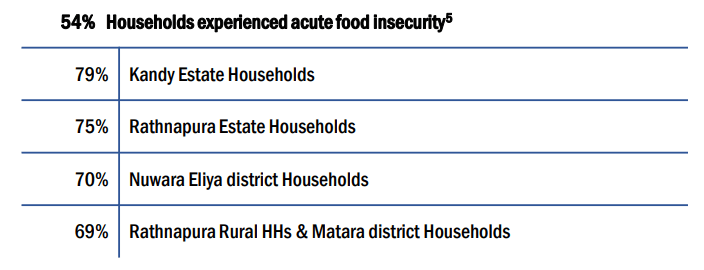Yet this is what is happening in many countries, including New Zealand.
The EU is determined on the Farm to Fork strategy, which foresees the achievement of 25% of organic production and a 20-50% reduction in the use of agrochemicals. The lower availability of food (10-15% in key products) and the economic implications have already been calculated as significant.

For Sri Lanka, the foray into organic is considered one of the significant factors that brought down the economy.
And in New Zealand, the regulatory environment, designed to protect humans, animals and the natural environment, is becoming increasingly stringent and complex, making farming more difficult and therefore costly.
If a farmer cannot support his family, with an income that reflects the hours worked, a different occupation will be chosen.
We’re seeing this globally, not just in New Zealand.
Children of farmers in developed countries are not following in their parents’ footsteps. Immigrant labor has become an important part of the survival of farmers around the world, because migrants want a better life for their children than they had in their home countries. They are willing to work hard for a better life and want their children to become medical professionals or accountants and lawyers, not farmers.
In a generation they are gone from the earth.
To stem this tide, the world needs to reconsider the role of the farmer as an agribusiness professional and food producer. And consider what we, as consumers, need.
Food that is safe to eat. Affordable food. Sustainably produced food (less greenhouse gases and less nitrogen dispersed into the environment per kg of product).
Animal welfare is tied to the list, as is the human welfare of employment with health and safety, as well as minimum wages, ACCs, and general compliance.
Most farmers take care of their employees, animals and land. Optimal care is associated with optimal activity. While there may be debate as to what constitutes optimal, it should always be remembered that a sick animal will not be an asset to the business. Nor will a grumpy employee.
As far as land is concerned, soil, pastures and plants (crops and trees) are vital to farmers’ productivity and mental health. We have seen it graphically in the media during and after cyclones, and relief has been poured into the area.

But the big regulatory issues that create barriers to progress remain. They limit the ability for food manufacturers to achieve desired results in a way that suits their business. This undermines professional pride, which is part of why succession and recruitment suffer.
The winter grazing regulations were changed because they were unworkable. Animal welfare activists aren’t happy and keep showing old footage of a flood every 100 years a couple of years ago to get more regulation.
Regulations don’t change flooding, but the flooding has made farmers more aware of the risks. There are now contingency plans and alternatives, but like any form of insurance, there is a cost.
For food manufacturer regulations, focusing on outcomes rather than inputs would be a refreshing change.
New Zealand’s focus in the past has been safe and affordable food that is sustainably produced. The attention to the result has given us a remarkable reputation. There have been a few bad apples, as in any profession, but overall, our reputation as a land of pioneers going over the weight in many areas, including agriculture, is deserved.
Outcome-focused regulation (OFR) has been debated and implemented in various jurisdictions globally. In the UK, OFR is designed to create a stronger and more efficient regulatory system by focusing on high-level principles and outcomes, replacing detailed, prescriptive rules with a focused, risk-based approach, and giving businesses more flexibility in how they deliver results .

In Canada, outcome regulation has enabled farmers and the world’s population to safely benefit from the development of GM crops by reducing the use of agrochemicals and fossil fuels by increasing the yield per hectare and the concomitant price per kg of product.
OFR allows entrepreneurs to tailor their operations to the environment in which they operate. For farmers and growers this means identifying the best crop/animal/pasture/tree species for their terrain, temperature range and soil type, and market needs and opportunities.
New Zealand farmers are in a better position to identify the required combination than anyone else in the central city. Allowing them to be innovative to achieve the required results will bring back a sense of value. And perhaps then the next generation of agribusiness professionals and food producers will appear.
A version of this article was originally posted on Stuff and has been reposted here with permission. Any republication should credit the original author and provide links to both the GLP and the original article. Find stuff on Twitter @NZStuff
#Viewpoint #Zealand #farmers #push #biotech #regulatory #reform #Farming #regulations #stop #flood #stifle #farmers #ability #ply #trade
Image Source : geneticliteracyproject.org
